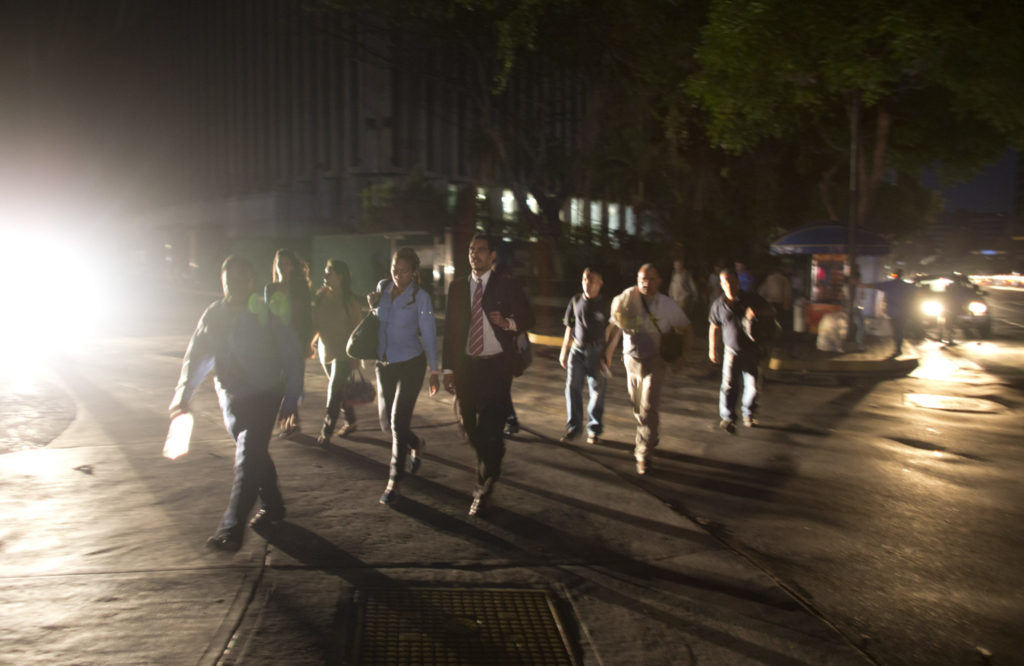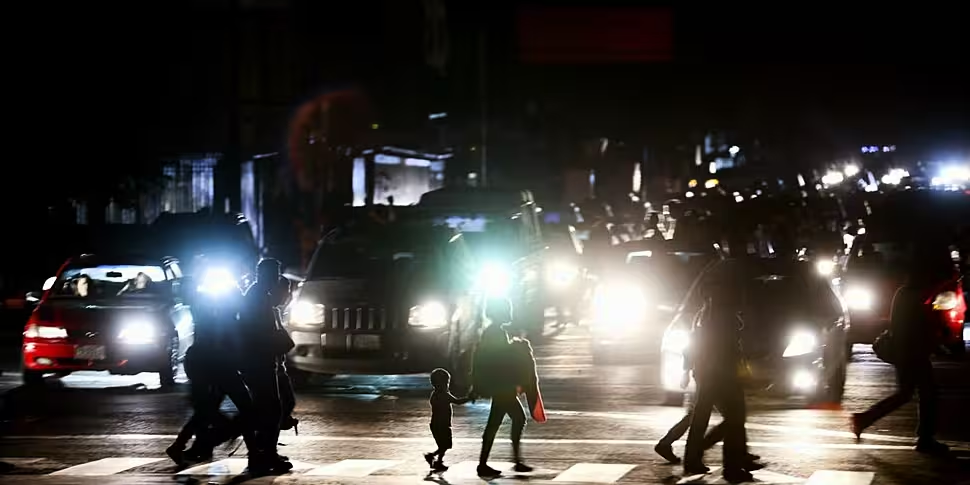Venezuela has been hit by a massive power cut amid the ongoing political tensions in the country.
The power outage began in Caracas on Thursday, plunging most of the capital city into darkness.
However, it soon spread to other parts of the country.
Reports from the ground suggested that the country's major international airport was also left almost completely without power.
 People walk on a dark street during a power outage in Caracas, Venezuela, Thursday, March 7, 2019. A power outage left much of Venezuela in the dark early Thursday evening in what appeared to be one of the largest blackouts yet in a country where power failures have become increasingly common. (AP Photo/Ariana Cubillos)
People walk on a dark street during a power outage in Caracas, Venezuela, Thursday, March 7, 2019. A power outage left much of Venezuela in the dark early Thursday evening in what appeared to be one of the largest blackouts yet in a country where power failures have become increasingly common. (AP Photo/Ariana Cubillos)The Venezuelan government claimed a major electrical plant had been 'sabotaged'.
President Nicolas Maduro pointed the finger at 'US imperialism', saying the "electric war [...] against our people will be defeated."
Opposition leader Juan Guaidó, who declared himself interim president of Venezuela in January, said there was "chaos, concern and indignation" in the country amid the blackout.
In a tweet overnight, he suggested 22 states were affected by the power outage.
He said: "How do you tell a mother who needs to cook, to a sick man who depends on a machine, or a worker who must work that we are in a country without power?"
US Secretary of State Mike Pompeo claimed: "Maduro’s policies bring nothing but darkness.
"No food. No medicine. Now, no power. Next, no Maduro."
The US, which has long opposed Mr Maduro, was one of the first countries to formally recognise Mr Guaidó as the leader of Venezuela.
The power outage and the devastation hurting ordinary Venezuelans is not because of the USA. It’s not because of Colombia. It’s not Ecuador or Brazil, Europe or anywhere else. Power shortages and starvation are the result of the Maduro regime’s incompetence.
— Secretary Pompeo (@SecPompeo) March 8, 2019
Venezuela crisis
The latest developments come as Venezuela remains embroiled in a major political power struggle.
Concerns have long been raised about the human rights situation under Maduro's government - with reports of various abuses, including torture, by the country's security forces.
The country is in the midst of a deep economic crisis, which has led to shortages of food and other supplies.
However, many commentators have also expressed unease about international efforts to support regime change in Venezuela, amid a mounting number of countries recognising Mr Guaidó as the country's interim leader.
Critics have slammed the actions as a 'coup' - instead insisting the Venezuelan people should be asked to choose their leaders through fresh and free elections without foreign interference.
The US, meanwhile, has aggressively focused on targeting the country's oil supplies.
That included hitting the country's state-owned oil company with heavy sanctions in a bid to limit the Maduro government's cash flow.









